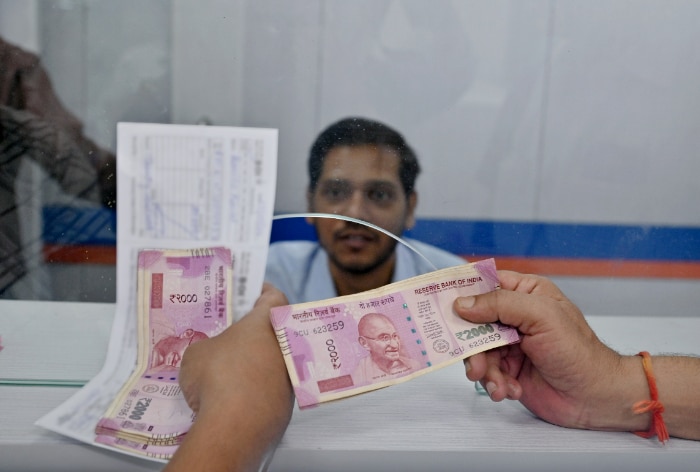Even as the deadline to exchange or deposit Rs 2,000 banknotes with banks is very near, reports suggest that a huge number of the highest denomination currency notes have not made their way to the banks.
Rs 2000 Notes Deadline: The deadline to exchange or deposit Rs 2,000 banknotes with banks is on September 30. While the notes will continue to remain legal tender even after September 30, they may not be accepted for transaction purposes and can only be exchanged with the Reserve Bank of India (RBI), said Bloomberg. Further, people might be asked to explain why they couldn’t meet the September 30 deadline. This means that it could be a tedious procedure for the customers if they are not able to exchange or deposit the highest denomination currency notes.
Here we try to break it down and make it easy for you to understand.
How Many Rs 2000 Notes Have Been Deposited
The RBI told in the first week of August that during the exchange and deposit process of the Rs 2000 currency notes, 88 per cent of the high-value denomination banknotes in circulation have been returned to banks till July 31 and that the total value of Rs 2000 notes in circulation, which was Rs 3.62 lakh crore till March 31, had come down to Rs 3.56 lakh crore by May 19, the day it announced the withdrawal.
The RBI cited the data from banks and said that the total value of the Rs 2000 notes received back from circulation till July 31 is Rs 3.14 lakh crore, making up for 88 per cent of the total notes and that the Rs 2000 banknotes in circulation till July 31 stood at Rs 0.42 lakh crore.
Rs 240 Billion Worth Of Rs 2000 Notes Still In Circulation
Now, as barely four days are left before the deadline of September 30, Bloomberg reports that almost Rs 240 billion ($2.9 billion) worth of Rs 2000 notes are in circulation, i.e., these notes have neither been exchanged nor deposited.
“While the vast majority of the Rs 3.56 trillion have since been banked, 7% of the notes remained in circulation as of September 1, 2023,” says Bloomberg.
RBI Withdrew Rs 2,000 Notes From Circulation On 19 May
The Reserve Bank of India had on May 19 this year announced that it would withdraw Rs 2,000 notes from circulation and said that people should exchange or deposit Rs 2,000 notes till September 30, 2023, at banks across India. The Central Bank of the country, however, made it clear that they will continue to be “legal tender” irrespective of their withdrawal from circulation but they will not be accepted for transaction purposes and can only be exchanged with the RBI.
“We are withdrawing the Rs 2000 notes from circulation but they continue as legal tender,” said Reserve Bank of India Governor Shaktikanta Das addressing the anxiety around the uncertainty over the obvious question, just like it had happened during November 2016 demonetisation when Rs 500 and Rs 1000 currency notes were rendered as non-operational by Prime Minister Narendra Modi.
Rs 2,000 Note Introduced In November 2016
The Rs 2,000 note was introduced in November 2016 to remonetize the economy after Prime Minister Narendra Modi-led central government withdrew Rs 1,000 and Rs 500 notes as legal tenders overnight. Since its introduction, the Rs 2000 note was very much preferred to stack up and conduct large cash deals.
RBI, in its withdrawal notice, said the Rs 2000 notes had served their purpose and were not commonly in use adding that it was a part of the “clean note policy” to replace soiled notes within a specific period, like four to five years.
Any customer who visits any bank’s branch to replace, exchange, or deposit the Rs 2000 note after September 30, will have to explain why the general deadline could not be met.

